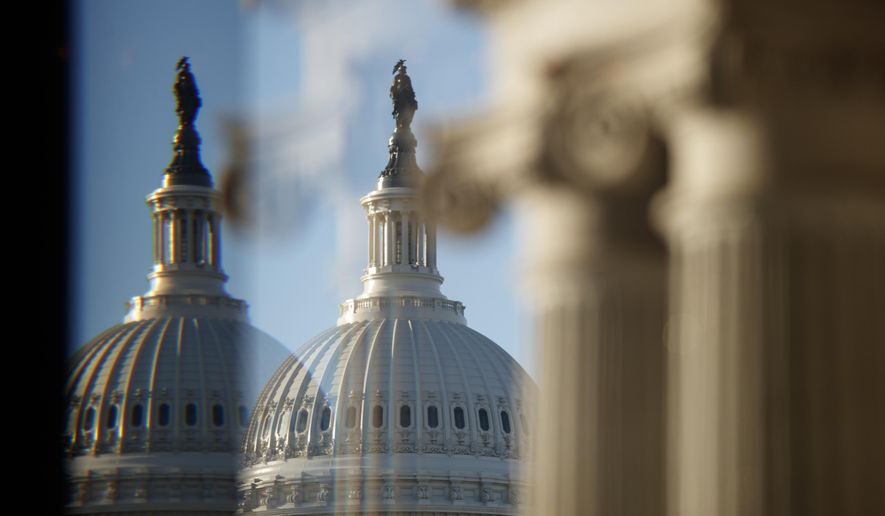With chances for adopting a budget almost nil, key lawmakers on the House and Senate budget committees say they are thinking about trying to resurrect last year’s failed attempt to overhaul the entire process.
The lawmakers say the budget committees are in danger of losing their relevance as Congress lurches between shutdown showdowns and stopgap spending bills, putting off big decisions about spending until the future.
They tried to come up with ideas last year, with the budget supercommittee tasked with recommending ways to fix what’s broken, but that panel ended in stalemate on even the most minor of tweaks.
But after three shutdowns in less than a year — including the longest in history — they say they are ready to try again.
“I’m all in. I’ll have that conversation with anybody,” said Rep. Steve Womack, the Arkansas Republican who co-chaired last year’s panel. “Any journey like this starts with taking the first step, and we had a first step.”
Senate Budget Chairman Mike Enzi, Wyoming Republican, says he’ll try to raise some broad reforms as part of his committee’s work this spring.
He said he already has talked with Democratic leaders about rolling the reforms into a catch-all package to increase spending caps and lift the federal debt ceiling.
“I told them that I needed to talk about caps, debt limit and reform all at one time, so we’ll see what happens,” Mr. Enzi said.
He already has put down a marker, attaching language aimed at starting budget talks to the 2020 budget plan he pushed through his committee last month.
In theory, the Budget Committee is supposed to craft an overall blueprint with top-level spending for the various departments and agencies, and a vision of revenue. Other committees, such as the spending and tax panels, then carry out those instructions.
But Sen. Sheldon Whitehouse said the committees have devolved to the point where they spin their wheels on writing budgets that their colleagues ignore, or else serve as a “delivery system” for when the majority party wants to unlock a fast-track tool that allows them to pass legislation without facing a filibuster.
“We are now fully meaningless. Those are the two things we do. We do nothing else,” said Mr. Whitehouse, Rhode Island Democrat. “We do not look at the debt and the deficit in any serious way.”
Mr. Whitehouse said he looks forward to working with Mr. Enzi to make some changes.
“If not, we should just jettison this stupid committee,” he said.
Mr. Whitehouse and Sen. Roy Blunt introduced legislation this year that includes some of the recommendations from Mr. Womack’s panel, like switching to a two-year budget cycle and giving lawmakers a few extra weeks in the spring to try to pass a non-binding budget resolution, which Congress is supposed to do by April 15 every year.
Mr. Blunt said he thought the supercommittee did ponder some important changes.
“The process worked better than I would have thought, short of producing a result,” the Missouri Republican said.
The Blunt-Whitehouse legislation would add the top members of the spending and tax committees to the budget panels, creating some unity that hasn’t always existed.
That’s actually how it used to be for the budget committee, said G. William Hoagland, a senior vice president at the Bipartisan Policy Center who worked on budget issues on Capitol Hill for decades.
“Basically, the people that are going to have to implement this get involved early on in setting those parameters, and I don’t know that’s entirely the solution but I do think that the current structure is no longer effective,” Mr. Hoagland said. “There’s no blueprint. I guess that’s it. We’re building a house now, and we don’t have a blueprint.”
House Democrats have given up on writing a 2020 budget.
Mr. Enzi advanced his GOP plan through the Senate committee, but there’s no guarantee it will ever see a floor vote.
Instead, Congress will try to reach a deal to raise budget caps, setting overall spending numbers but without the benefit of a full budget.
• David Sherfinski can be reached at dsherfinski@washingtontimes.com.




Please read our comment policy before commenting.